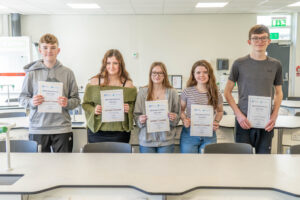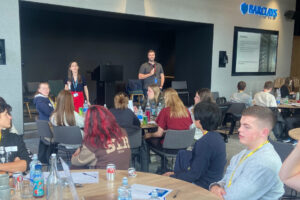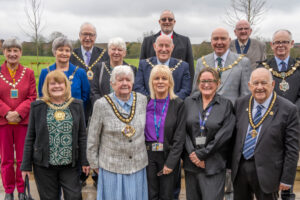National Prize for Cronton Physics Students
Three A Level Physics students from Cronton Sixth Form College were thrilled last week after it was announced that they had won prizes in a national Science competition.
Andrew Owen, Catherine Arnold and Juliet Porter have all been awarded the prizes for the best research portfolio and two runner-up prizes after entering the prestigious Armourers and Brasiers Sixth Form Materials competition.

The winning students will travel to London on the 1st December to receive their prizes at the awards ceremony at the impressive Armourers’ Hall.
The Armourers and Brasiers Sixth Form Materials Prize, supported by IOM3, is a new competition designed to encourage students to develop a sustained interest in STEM careers through enrichment of their studies and the students from Cronton Sixth Form took part in the competition as part of the Centre of Excellence in Science and Maths activities offered by the college.
Andrew said “I particularly enjoyed working on the osmotic power plant project which gave me a valuable insight into the world of materials science. I’m delighted to have won the prize”
Juliet said “We spent a lot of time on the project, but we really enjoyed doing it, so it is great to get some recognition”
Catherine said, “I was ecstatic when I found out that we had won. We put a lot of work in to the project so it was really nice to have won.”
Pam Dugdale, Head of Physics at Cronton Sixth Form said, “The students were very determined and worked hard for a full year on their competition entries. During this time they dismantled objects as varied as kettles and calculators to find out what they were made of, built models of crystal structures including a huge model of Manchester Universities new Nobel winning prize material graphene, completed mechanical testing to learn more about jet engines, and investigated how nanomaterials may allow us to use osmosis to generate electrical power in the future.
“We were also very pleased when Dr Rachel Williams from Liverpool University came into college to show us how traditional and new ‘smart’ materials are being used in medicine to improve the quality of patients’ lives through bioengineering.”



